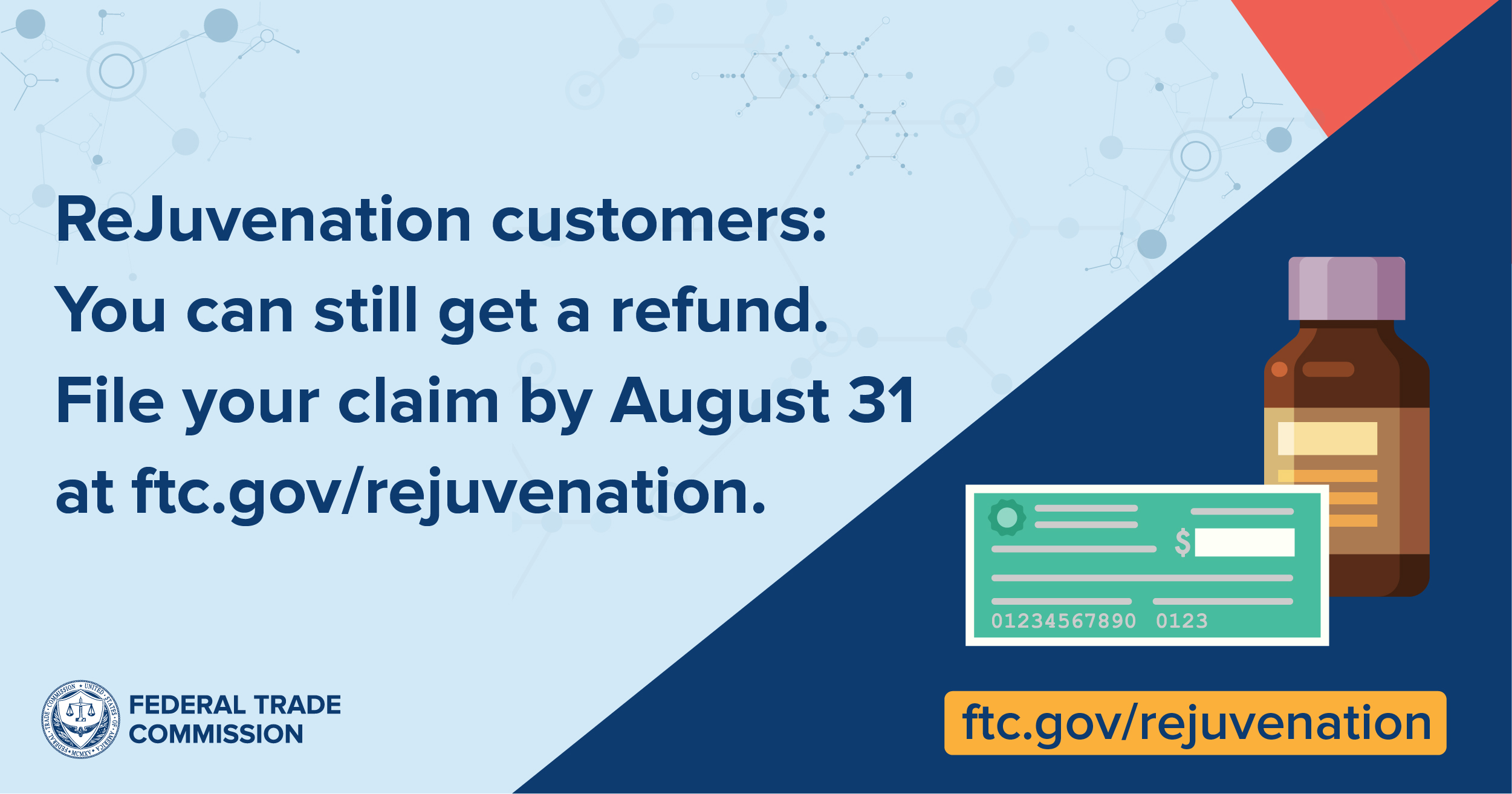 Last year, the FTC reached a settlement agreement with makers of ReJuvenation and sent refund checks to people who bought this so-called “anti-aging” pill that claimed to be a cure-all for ailments including cell damage, heart attack damage, brain damage, and deafness. If you bought ReJuvenation and haven’t already gotten a check, here’s what you should know.
Last year, the FTC reached a settlement agreement with makers of ReJuvenation and sent refund checks to people who bought this so-called “anti-aging” pill that claimed to be a cure-all for ailments including cell damage, heart attack damage, brain damage, and deafness. If you bought ReJuvenation and haven’t already gotten a check, here’s what you should know.
It’s easy to get your money. Just go to the Quantum Refunds page at ftc.gov/rejuvenation and follow the instructions for filling out a claim. The deadline for filing claims is August 31, 2021. The average refund check has been about $113 dollars. Once you get your check, deposit it right away since it will expire after 90 days.
Also, please know that the only way these FTC refund checks will come to you is by postal mail. And you never have to pay to get a refund from the FTC. If someone contacts you and asks you to pay, or says they can help you get a refund, it’s a scam — report it to the FTC.
For more information about the ReJuvenation refunds, visit ftc.gov/ReJuvenation. And check out ftc.gov/refunds for more information on the FTC’s refund program.
